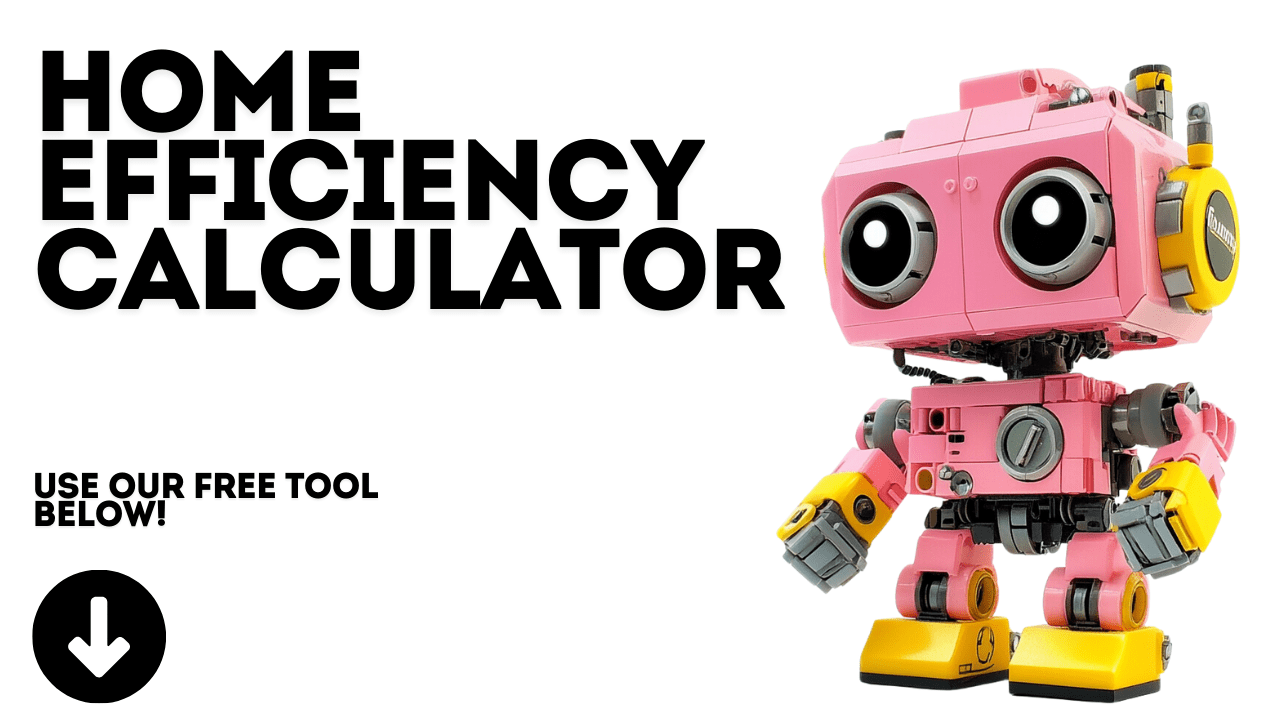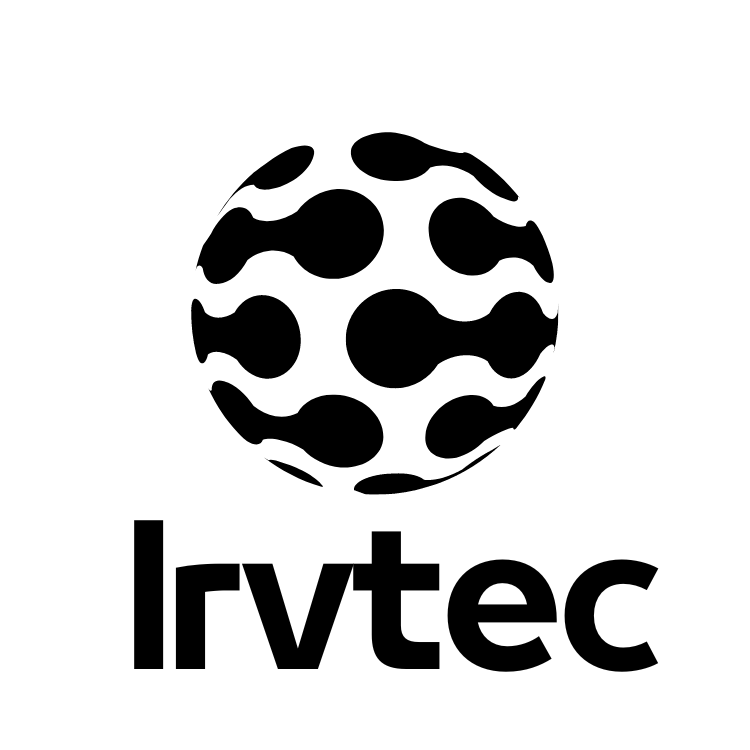
Maximize your Homes energy efficiency Potential
Tool Usage Counter
Number of times tool used: 0Home Efficiency Calculator
How to Use the Home Efficiency Calculator
Using our Home Efficiency Calculator is simple, but it’s important to provide accurate information to get the best results. The calculator asks for specific details about your home, from the square footage to the type of lighting you use. Here’s a guide on how to use the calculator and answer each question effectively.
Enter Your Home’s Square Footage:
The first step is to input the total square footage of your home. If you’re unsure, you can usually find this information in your home’s purchase documents, or you can measure each room and add up the total. This figure helps the calculator estimate your energy consumption relative to the size of your home.
Rate Your Insulation Quality:
Insulation is crucial for maintaining a stable temperature in your home. The calculator will ask you to rate your insulation as ‘Poor,’ ‘Average,’ ‘Good,’ or ‘Excellent.’ If your home feels drafty in the winter or too warm in the summer, your insulation might be on the lower end. If you’re unsure, consider how well your home retains heat and cool air.
Assess Your Heating/Cooling System Efficiency:
Your HVAC system plays a significant role in your home’s energy efficiency. Newer systems that receive regular maintenance are generally more efficient. Older systems, especially those over a decade old, may be less effective and could fall into the ‘Inefficient’ or ‘Average’ categories.
Input the Number of Windows:
Enter the total number of windows in your home. Windows are a common source of heat loss or gain, so their number and quality impact your energy efficiency. Be sure to include all windows, including those in basements or attics.
Select Your Primary Energy Source:
This question asks about the main energy source for your home—options include electricity, natural gas, solar, and others. If you use multiple sources, select the one that powers most of your home’s needs. Your energy source can influence your efficiency score significantly, especially if you’re using renewable energy.
Enter the Age of Your Home:
Older homes tend to have less efficient materials and technologies. If your home is over 30 years old, it might score lower in this category, whereas newer homes built with modern materials may score higher.
Choose Your Roof Type:
The roof plays a vital role in your home’s energy efficiency. Reflective roofs, which bounce back more sunlight, are more energy-efficient, especially in warmer climates. Non-reflective roofs, on the other hand, can absorb more heat, leading to higher cooling costs.
Rate Your Appliance Efficiency:
Appliances such as refrigerators, ovens, and washers/dryers consume a lot of energy. The calculator will ask you to rate the overall efficiency of these appliances. Energy Star-rated appliances typically fall under the ‘Efficient’ category.
Select Window Glazing Type:
Window glazing refers to the number of glass layers in your windows. Double or triple-glazed windows are far more effective at insulating your home compared to single-glazed ones. If you have older, single-pane windows, this might be an area where you can improve.
Choose Your Lighting Type:
Lighting is often overlooked, but it can make a significant difference in your energy consumption. LED bulbs are the most efficient, followed by CFLs. Incandescent bulbs are the least efficient and can dramatically increase your energy usage.
Tips on How to Be More Energy Efficient
Now that you’ve used the calculator to assess your home’s efficiency, it’s time to take action. Here are some detailed tips to help you make your home as energy-efficient as possible:
Upgrade Your Insulation:
One of the most impactful ways to improve energy efficiency is by upgrading your insulation. This might involve adding more insulation to your attic, walls, and floors. Insulation works by trapping heat inside during the winter and keeping it out during the summer, reducing the need for heating and cooling. Consider using spray foam insulation for maximum effectiveness, especially in hard-to-reach areas like crawl spaces and attics.
Install Energy-Efficient Windows:
If your windows are single-glazed or older, upgrading to double or triple-glazed windows can significantly reduce heat loss. Energy-efficient windows not only improve your home’s insulation but also reduce noise and increase comfort. Look for windows with a low U-factor and a low-emissivity (Low-E) coating, which can help keep your home warm in the winter and cool in the summer.
Upgrade Your HVAC System:
Your heating and cooling system is one of the biggest energy users in your home. If your system is more than 10-15 years old, it may be time to consider an upgrade. Look for a system with a high Seasonal Energy Efficiency Ratio (SEER) for cooling and a high Annual Fuel Utilization Efficiency (AFUE) for heating. Additionally, make sure to perform regular maintenance on your HVAC system, such as changing filters and scheduling annual tune-ups, to keep it running efficiently.
Switch to LED Lighting:
Lighting accounts for a significant portion of your electricity bill, and switching to LED bulbs can drastically reduce energy consumption. LEDs use up to 75% less energy than incandescent bulbs and last 25 times longer. Consider replacing all the lights in your home with LEDs, and you’ll notice a drop in your energy bill almost immediately. Also, look for smart LED bulbs that allow you to control lighting remotely and set schedules, further optimizing energy use.
Consider Roof Upgrades:
The type of roof you have can greatly influence your energy efficiency. If you’re in a warm climate, a reflective roof can help keep your home cooler by reflecting more sunlight. Reflective roofs are often made from materials like metal or special reflective coatings that can be applied to your existing roof. If you live in a colder climate, a dark, non-reflective roof might be beneficial as it absorbs heat, helping to warm your home naturally.
Use Energy-Efficient Appliances:
Appliances are a significant source of energy use in most homes. Upgrading to Energy Star-certified appliances ensures that your fridge, washer, dryer, and other major appliances use less energy without sacrificing performance. For example, modern Energy Star refrigerators use about 15% less energy than non-certified models, which adds up to substantial savings over time.
Seal Windows and Doors:
Even with the best insulation, drafts around windows and doors can let heat escape, making your heating system work harder. Use weatherstripping and caulk to seal gaps and cracks around windows and doors. This is a simple and inexpensive fix that can greatly improve your home’s energy efficiency.
Install a Programmable Thermostat:
A programmable or smart thermostat can optimize your heating and cooling system by adjusting the temperature according to your schedule. For example, you can set it to lower the heat when you’re not home and increase it just before you return. Smart thermostats go a step further by learning your habits and adjusting the temperature automatically, saving energy without you even noticing.
Consider Renewable Energy Sources:
If you’re looking for a significant long-term improvement, consider installing renewable energy sources like solar panels. Solar energy can dramatically reduce your reliance on traditional power sources, lowering your energy bills and reducing your carbon footprint. While the initial investment can be high, many governments offer incentives and rebates to make solar power more affordable.
Conduct Regular Energy Audits:
Finally, consider scheduling a professional energy audit for your home. A certified energy auditor will conduct a thorough inspection of your home’s energy use and identify areas where you can improve efficiency. They may use tools like blower doors to identify air leaks and infrared cameras to detect insulation gaps. This comprehensive assessment can provide you with a detailed action plan to make your home as energy-efficient as possible.
